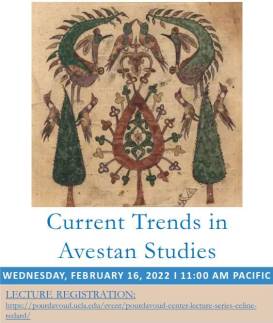The Idea of Iran: The Safavid Era
27 October 2018, Brunei Gallery, SOAS London
 The sixteenth and seventeenth centuries saw the establishment of the new Safavid regime in Iran, heir not only to the succession of leadership of the Safavid sufi order, but also to the Aq Qoyunlu dispensation of western Iran and more remotely to the Timurid Empire in the East. Along with reuniting the Persian lands under one rule, the Safavids initiated the radical transformation of the religious landscape by introducing Imami Shi‘ism as the official state faith and in this as in other ways, laying the foundations of Iran’s modern identity. While sometimes viewed as a period of decline from the highpoints of classical Persian literature and the visual arts of preceding centuries, the Safavid era was nevertheless a period of great literary and artistic activity in the realms of both secular and theological endeavour. In addition, with the establishment of comparable polities in across western, southern and central Asia at broadly the same time, interactions with Ottoman, Mughal and Uzbek neighbours ensured fruitful interactions with other Muslim states also making the transition for the medieval to the modern world. Finally, European encounters with these worlds provide rich new layers of information and evidence of material and intellectual transmission.What does the Idea of Iran mean at this period? Can we discern the ways that contemporaries viewed their traditions and their environment (natural or built); what was the view of outsiders, and how does modern scholarship define the distinctive aspects of the period? These are some of the questions we hope to explore in the symposium dedicated to this rich and highly productive period that took Iran to the eve of modernity.Convened by Sarah Stewart, SOAS and Charles Melville, University of Cambridge.
The sixteenth and seventeenth centuries saw the establishment of the new Safavid regime in Iran, heir not only to the succession of leadership of the Safavid sufi order, but also to the Aq Qoyunlu dispensation of western Iran and more remotely to the Timurid Empire in the East. Along with reuniting the Persian lands under one rule, the Safavids initiated the radical transformation of the religious landscape by introducing Imami Shi‘ism as the official state faith and in this as in other ways, laying the foundations of Iran’s modern identity. While sometimes viewed as a period of decline from the highpoints of classical Persian literature and the visual arts of preceding centuries, the Safavid era was nevertheless a period of great literary and artistic activity in the realms of both secular and theological endeavour. In addition, with the establishment of comparable polities in across western, southern and central Asia at broadly the same time, interactions with Ottoman, Mughal and Uzbek neighbours ensured fruitful interactions with other Muslim states also making the transition for the medieval to the modern world. Finally, European encounters with these worlds provide rich new layers of information and evidence of material and intellectual transmission.What does the Idea of Iran mean at this period? Can we discern the ways that contemporaries viewed their traditions and their environment (natural or built); what was the view of outsiders, and how does modern scholarship define the distinctive aspects of the period? These are some of the questions we hope to explore in the symposium dedicated to this rich and highly productive period that took Iran to the eve of modernity.Convened by Sarah Stewart, SOAS and Charles Melville, University of Cambridge.







